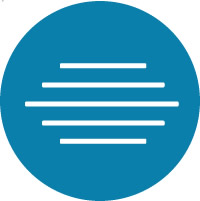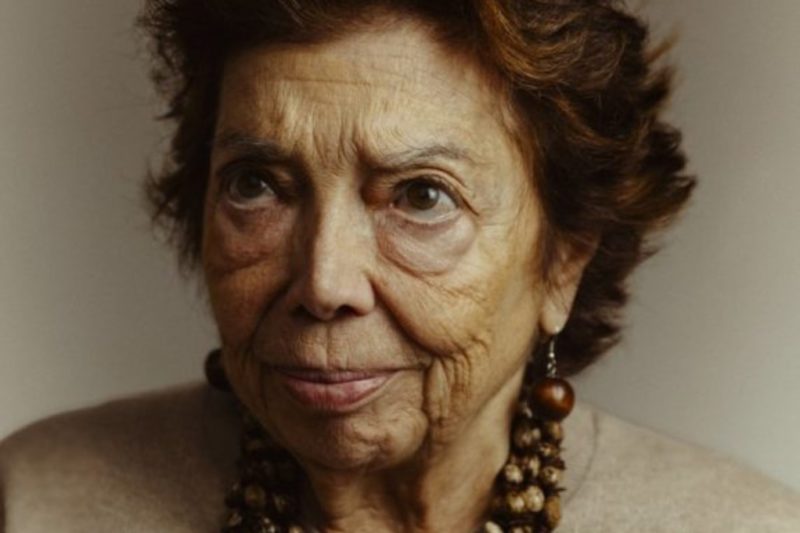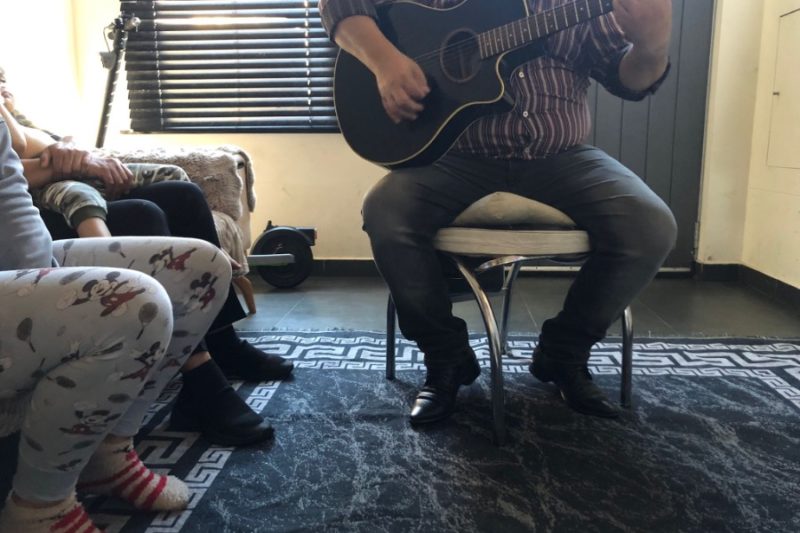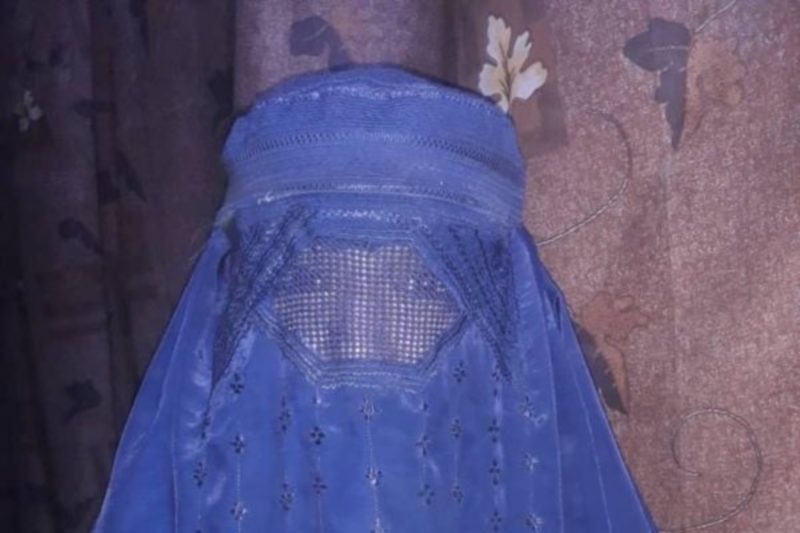Palestine : fleeing home to save her life (8)
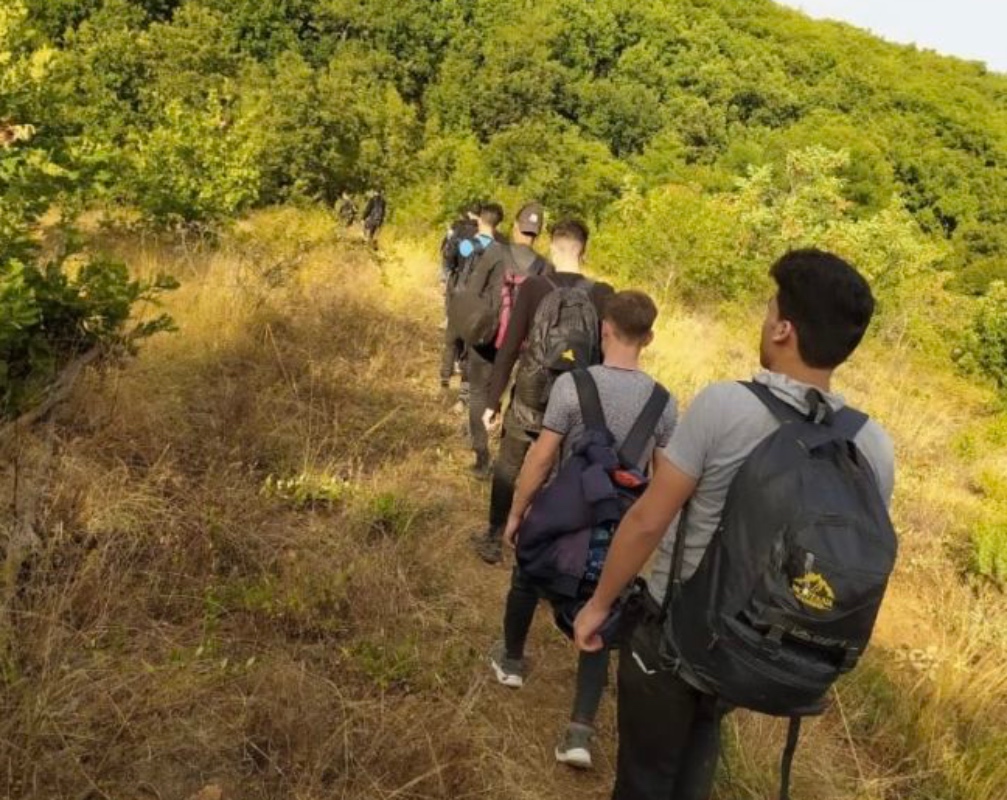
Omayma Masoud, a journalist with more than 20 years’ experience, was forced to leave her native Palestine after being threatened by Hamas. By dedicating her life to the profession and to the fight for women's rights, she feels she signed her own death warrant. In this eighth part of her story, she meets a grieving mother during another attempt to make it to Greece.
The hiding and the waiting intervals were carefully designed to avoid countering the police patrols or commandos on the Greek side and/or the gendarme on the Turkish side, as the traffickers knew by heart the timetables of all the shifts of the two parties. As for me and the rest of the group, we were just blindly obeying their instructions on when to run and when to stop. We had been here before, putting our fates entirely into the hands of the trafficker.
All it took was a phone beeping, then the trafficker ‘Luckman’ would jump to his feet with new instructions to carry the rubber boat on the men’s shoulders and head towards the river bank. Just like before we were divided into two groups; the women and children would get in the boat as the first round then followed the men as a second round.
As soon as the oars began to row and the boat moved slowly, the two little girls, aged two and four, panicked and kept on crying and screaming, which made the situation even more tense. Everyone panicked, fearing that their screams would be noticed by police patrols, and then we would be done. To our surprise, no one paid attention – although fate had in store for us something far more bizarre and difficult.
Hidden point
The two groups managed to cross the river and got safely to the bank on the Greek side. Luckman the trafficker order us to follow him on foot for around 15 minutes to reach the “point” – hidden between dense trees with tangled branches – which was a fixed place where we would wait for the cars to come to take us into the depths of Greece. We were heading to the city of Thessaloniki, presumably to a safe area from where no one would bring us back to the river or to Turkey. Even if we got caught, we would be sent to a refugee camp.
Feelings of comfort and tranquility spread through the air around us. We were glad that we didn’t have to walk much and that we got to the “point » safely, from where we were supposed to depart early the next morning. This city of Thessaloniki remained unknown and invisible to me until this moment.
There we found many empty bags of different sizes and a lot of clothes thrown on the ground between the trees, so we made our beds and covers from the treasures we found. Almost everyone fell asleep immediately.
In the early morning, it felt bitterly cold and dark clouds swept over the sky, but we got busy hiding behind a tree to change our clothes, in preparation for our journey.
Waiting hour after hour
It was a journey indeed – not towards freedom but rather a journey of a different kind, of waiting hour after hour.
The cars had not arrived and many phone calls were made or received to inquire about when they would come. In the daylight, Luckman told us it would be at night, and when the night came he told us they would arrive in the early morning.
The hidden point was near the main autoroute. No one could see us behind the thick trees but we could hear the cars and trucks roaring along the road.
Although the morning was very cold, by noon it was hot, which brought out insects and huge snakes. We were horrified. To protect ourselves we had to stay in circles with women and children inside while the men lit a big fire nearby and held sticks to push the snakes away.
Days and nights went by, and by the fourth day we ran out of food and water. Luckman went back to the river and returned with bottles filled with dirty green or brown water, but we drank it anyhow.
The children suffered the most as they wanted to play and scream but their parents obliged them to keep quiet.
Aaran, a big handsome man with fair hair, his stunningly beautiful pregnant wife, and the two angelic young girls, were Syrians. They used to live in the city of Idlib in the Damascus countryside.
They came from a large extended family, all of whom had already been killed or had left Syria, leaving only them. Aaran spent five years in prison for no crime other than being in the street one night; he felt left behind alone, facing this injustice.
« I believe in finding a better life for my children. »
Aaran said: “I worked hard for four years to save money for this trip. I worked in everything, day and night and sold everything I had; my car and my house. Now I only have this family to cherish and protect. I am expecting a boy this time. All I want is to join my father and brothers in Germany. I believe in finding a better life for my children. I won’t allow anything to hurt them.”
As he said this last sentence, his eyes shined with a scary look; the look of a man that is capable of doing anything. And later, he did.
Another family with a spoiled son who had big shining black eyes and thick black hair, were also Syrians, from Aleppo. The mother was very thin and looked fragile and scared but the father seemed strong and bold. They were very rich people from the upper class of the city. During one of the raids on Aleppo, the boy was missing for a long time. They looked for him everywhere to the point that they believed that he was killed. They found a small burnt body and they believed it was their son’s, which they buried. They even built a beautiful tomb for the boy to visit whenever they missed him.
Twenty days after they buried their son, they received a phone call to inform them that the boy was alive but had been kidnapped. They were victims of the security chaos occuring when different authorities fought in the same country.
« I could have killed them with my hands. »
The boy’s father told me: “I had never felt so happy and so angry at the same time like when I had received that phone call. I dropped on my knees praying thanks to God that my son was alive and cursed from the bottom of my heart regretting all the sadness, grief, sorrow and mourning over our son while he was still alive. I could have killed them with my hands. Then, I had to think of how to get him back safely. I just wanted my son back between my arms.
“We lost everything to pay an enormous ransom to get our kidnapped son back. The kidnappers wanted everything that we had, which was a lot and I gave it all to them and took back the most precious part of my heart; my son. But I decided not to stay and to leave for safety. With only our clothes on us, we left on a dark night toward Turkey with some old connection [who] helped us to cross the borders and from Istanbul we planned our trip towards Europe, hoping to grant my son a normal life. He is everything that I have and he is everything that I’m living for now.”
As we were sitting chatting we heard the screams of a woman. It turned out to be a couple fighting over who was going to sleep to the right side and who on the left. We all laughed hard. We needed that laugh; it was already the sixth day with no sign of the cars that were supposed to come, but only some news that there was some big construction work on the main road next to where we were hiding and therefore no car dared to approach the area.
In the middle of the laughter, Aaran, his wife and his two little girls disappeared. They sneaked their way to the main road to surrender themselves to the police. Aaran feared that his wife might lose her pregnancy. Soon after, the young boy and his parents followed towards the main road.
« Forgive me, it would cost me 25 years in prison if I’m caught. »
Luckman jumped to his feet saying: “The police could be here in a few moments and I can’t stay with you. Forgive me, it would cost me 25 years in prison if I’m caught.”
In a split second he jumped into the bushes and disappeared.
I also thought of going to the police, but feared that when they threw me to the Turkish bank of the river that I wouldn’t be able to get back to Istanbul by myself, so I was forced to stay with the group.
Those were moments of fear, terror and complete loss but one man, Jalal, initiated the idea that we should move towards the depths of Greece by ourselves. All mobile phones were switched off except one and, using Googlemaps as our leader, we started the journey to come.
We walked for hours and hours. At one point we entered a forest only to find out that it took us back to where we were before. Another time we climbed one mountain after another with great difficulty. We were so weak, hungry, thirsty and, most of all, afraid and lost.
In the middle of nowhere
My mind became obsessed with one thing – that I had left Asia to journey to Africa, then to Asia again and was now at the doors of Europe, only to die alone of hunger in the middle of nowhere.
Would anyone recognise my body? I had my Palestinian ID card hidden in my clothes.The horrible thing was that we had no other choice but to continue, hoping to arrive somewhere, but not knowing where.
Finally we were approaching a small Greek village called Soufli. We could see from afar the houses with crimson roofs and lit windows.
We barely had a moment to feel relief when the commandos attacked us.
These were not the Greek police but commandos forces who immediately launched a severe attack, screaming, insults, beatings with batons and sticks. Even the little girl was not saved from their violent attack.
They took our coats, shoes, bags and mobile phones. They put us in a big van with sealed metal windows and only a small hole in the roof. The vehicle moved towards the unknown.
I had heard about the commandos before but what I was about to learn from them is another story to be told.
Les sept premiers épisodes de « Palestine : la fuite pour sauver sa vie » à (re)lire ici.
